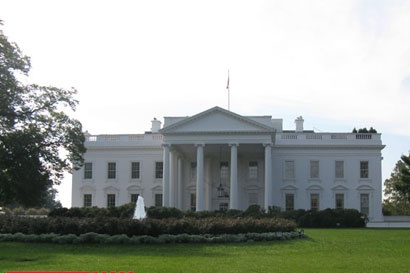White House asks Senate to delay new Iran sanctions

By Sara Rajabova
Ahead of the upcoming negotiations over Iran's nuclear program, the U.S. administration apparently has no intention of imposing new sanctions against Tehran.
The White House hosted a meeting of aides to Senate committee leaders on October 24 in an attempt to persuade lawmakers to postpone new sanctions against Iran, Reuters reported.
A Senate Banking Committee vote on a sanctions bill was due last month, but it was held back after a request from the Obama administration to give the nuclear talks with Iran more time.
However, a senior White House official said that the U.S. has no intention of scaling back sanctions against Iran "at the front end" of negotiations over Tehran's nuclear energy program.
U.S. President Barack Obama's deputy national security adviser Ben Rhodes said that Iran needs to take what he called "concrete steps" over its nuclear energy program before the U.S. can decide to relax sanctions against the country.
"We are not contemplating anything that removes those sanctions at the front end of any negotiation or agreement, because it's going to be important to test Iranian intentions," Rhodes said, adding, "Before we could pursue sanctions relief, we'd have to see concrete steps by the Iranians to get at the state of their nuclear program."
However, he said that one of the many ways to provide sanctions relief to Iran was to release Iran's frozen assets.
The sanctions imposed in 2011 by Washington and the European Union have slashed Iran's oil exports by more than 1 million barrels a day, depriving Tehran of billions of dollars of sales a month and driving up inflation and unemployment.
Iran and six world powers - the U.S., Britain, France, Russia, China and Germany - are to meet in the Austrian capital, Vienna, next week in the run-up to the upcoming nuclear talks in Geneva.
Both sides expressed satisfaction with the first round of talks which took place on October 15-16 in Geneva and agreed to meet again in the Swiss city on November 7-8.
During the Geneva talks Iranian Foreign Minister Mohammad Javad Zarif presented Tehran's proposal titled "Closing an Unnecessary Crisis, Opening a New Horizon" to EU foreign policy chief Catherine Ashton and the representatives of the six countries.
The U.S. and some of its allies suspect that Tehran's nuclear program aims at developing nuclear weapons capability, but Iran insists it is purely for peaceful purposes.
Tehran has rejected the allegations, arguing that since the country is a signatory to the Non-Proliferation Treaty and a member of the International Atomic Energy Agency, it is entitled to developing nuclear technology for peaceful purposes.
